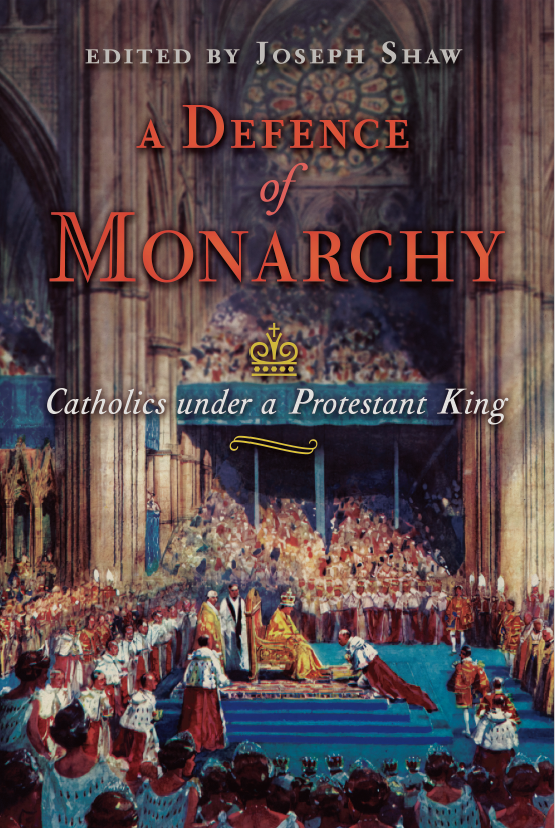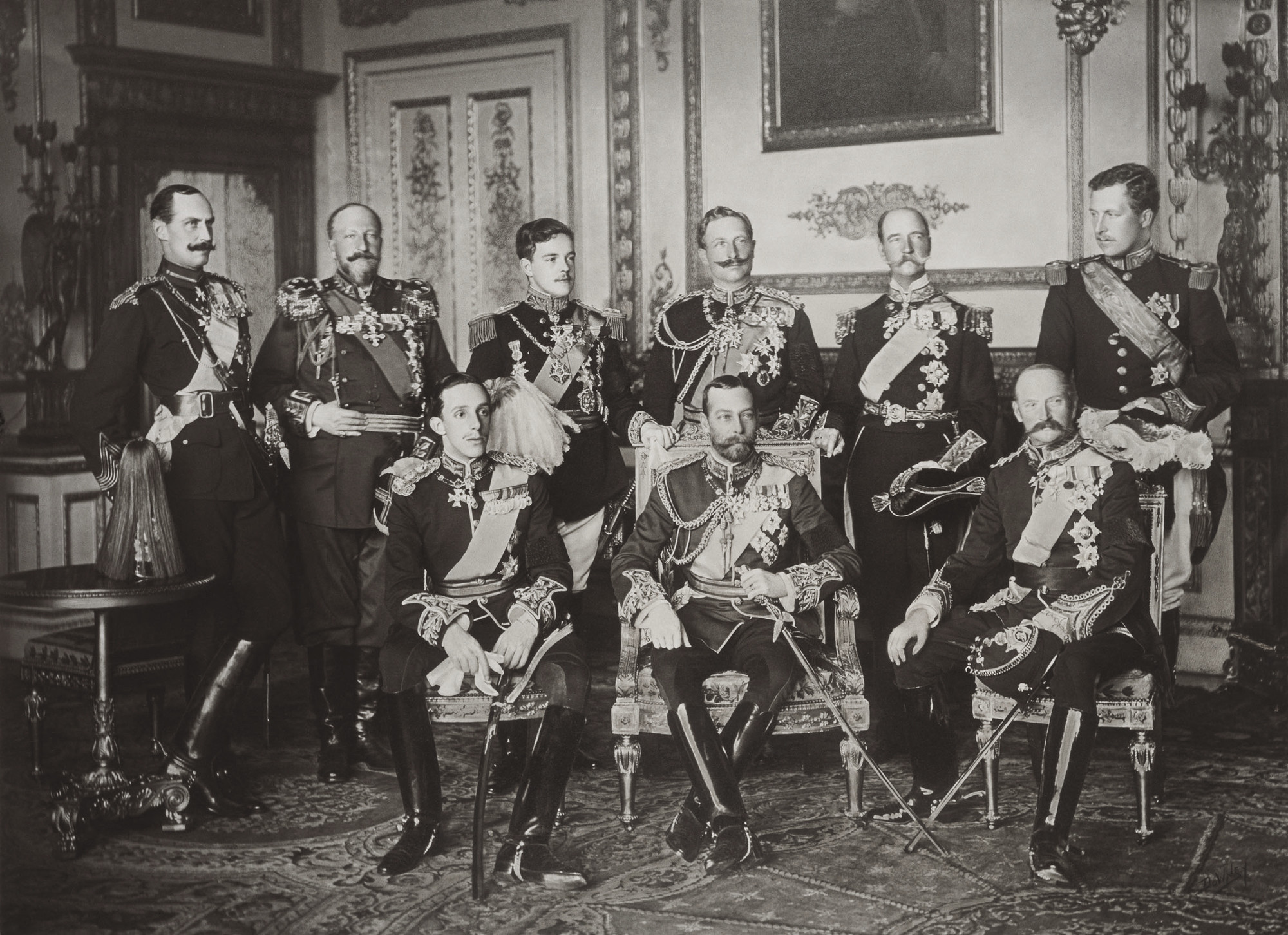|
Getting your Trinity Audio player ready...
|
Above: the Nine Sovereigns at Windsor for the funeral of King Edward VII in 1910. Standing, from left to right: King Haakon VII of Norway, Tsar Ferdinand of Bulgaria, King Manuel II of Portugal, Kaiser Wilhelm II of the German Empire, King George I of Greece and King Albert I of Belgium. Seated, from left to right: King Alfonso XIII of Spain, King-Emperor George V of the United Kingdom and King Frederick VIII of Denmark.
I don’t expect, in general, American citizens to be easily impressed by arguments for a hereditary monarchy, but the downsides of an elected executive Presidency are perhaps most on display in the year of a bitterly contested election. The extraordinary “bloodbath” discourse currently swamping my social media feed is a reminder that, just as many conservatives and Christians feel their very existence and identity is threatened by the progressive state, so many progressives in positions of influence in the media, academia and politics feel something similar about a possible Trump second term. The prestige and legitimacy of elements of the constitution that perdure through the electoral cycle—the civil service, the armed forces, the judiciary, and for some lucky nations a hereditary monarchy—should not be seen as regrettable limitations on the democratic principle, but as a set of things that can nurse democracy through its stickiest moments.
The Catholic case for monarchy is not just about its practical usefulness in a modern democracy, however, but about its symbolic importance, which translates remarkably well between the conditions of democratic and non-democratic, modern and pre-modern, and Western and non-Western polities. This is a central point of a collection of essays which I have edited to respond to criticisms of the monarchy in the context of last year’s British royal succession, not just by addressing some rather ignorant political and legal arguments, but by defending the idea of a person at the apex of a constitution who is as much as possible identified with that role: who is the head of state not by virtue of his own or anyone else’s choice, but just by being who he is.
The idea of being given a role and set of obligations by one’s birth and upbringing is deeply antithetical to the ideology of individualism, but even the most modern people have to accept that they do not create themselves from nothing. We have duties towards aged parents, indigent siblings, and children we didn’t intend to conceive; if we are honest with ourselves, we recognise that we are the products of our education, of our parents’ values, and of our home environment. This is not to diminish our agency, but to give it a context in which it can operate, namely a world created by others, populated by institutions, norms, relationships, and expectations inherited from the past, which we can choose to uphold, defy, or try to shape.
Radical individualism is a kind of solipsism: an attempt to live as if no-one else existed. It is a sad comment on the takeover of ‘conservatism’ as a label by economic liberalism that individualism is critiqued most powerfully today by the left and not the right. We may think claims by the woke people for reparations for centuries-old historic injustices, for example, are ridiculous, and they may indeed be so, but in itself the notion that one generation of a community or institution may have to pay for the sins of a previous generation is not ridiculous at all. As the Baltimore Catechism reminds us, ‘on account of the sin of Adam, we, his descendants, come into the world deprived of sanctifying grace and inherit his punishment, as we would have inherited his gifts had he been obedient to God.’
The heir to a throne inherits something so overwhelming and life-dominating that we may feel more sorry for him than envious. He has the option of repudiating it, but he also normally inherits a powerful sense of obligation in favour of it. This being bound to the community and to the past exemplifies a virtue that is central to the movement for the Traditional Mass: the virtue called for by the Fourth Commandment, “honour your father and mother,” and called by the Romans pietas. We may well find the Traditional Mass personally appealing or consoling, but we do not base our defence of it on consumerism. There is more to this Mass than an attractive offering in the modern spiritual supermarket, alongside all the others. The Church’s liturgical patrimony imposes an obligation us like the obligation felt by Tolkien’s Faramir in the Lord of the Rings to defend his city, Minas Tirith, on account of “her memory, her ancientry, her beauty, and her present wisdom.” Or as Pope Benedict XVI said of the ancient Mass, “What earlier generations held as sacred, remains sacred and great for us too, and it cannot be all of a sudden entirely forbidden or even considered harmful. It behooves all of us to preserve the riches which have developed in the Church’s faith and prayer, and to give them their proper place.”
What, though, is the value of the monarchy, in Britain or anywhere else? We can go beyond the utilitarian justification that it adds stability to the constitution—though this argument is perfectly valid in itself. St Thomas Aquinas was aware of many kinds of states, including forms of democracy both ancient and contemporary, but preferred monarchy because a single ruler, and not a pair of consuls or a sovereign assembly or anything else, most eloquently symbolises the rule of the political community by God’s law, and not by the whims of human beings.
Just as God rules the heavens, so, under God, does a king rule a kingdom, a husband and father rule a family, and reason rule a human individual (De Regno Ch. 1, 9). This kind of language is sometimes understood to imply tyrannical rule answerable to no-one, but quite the opposite is true. Aquinas places kings and other governing powers in a hierarchical relationship, with God at the top. Subordinate rulers do not choose their goals. Their objectives, and therefore the nature and limitations of their power, is given from above. For kings, of course, the purpose of their government is the good of the political community, a community with which he should identify completely: “he is to be in the kingdom what the soul is in the body” (De Regno Ch13 (94)).
The question of the possible abuse of power is in any case hardly applicable to modern constitutional monarchs. A constitutional monarch’s delegation of executive power does not diminish, but rather underlines, his role as a symbol of God’s rule. This symbol is expressed in a very beautiful way in the British coronation ceremony, both in its texts and its rituals, which are derived from an ancient Catholic tradition.
Monarchies cannot easily be planted, and there is no immediate danger of existing monarchies being uprooted. The question remains as to what a proper Traditional Catholic attitude to them should be. As representatives of immemorial traditions, even the pagan monarchies of the Far East should command the respect of those who take tradition seriously. The Christian and Catholic history of the monarchies of Europe (and indeed of Africa), on the other hand, should give them a special place of affection in our hearts. If monarchs today, like the holders of practically every other major political office in this grim moment of world history, are less than perfect, their Catholic subjects should pray for them all the more. They should not seek the self-mutilating satisfaction of undermining a Catholic symbol to punish the frailties of its current representative.

A Defence of Monarchy: Catholics Under a Protestant King (Angelus Press, 2023) edited by Joseph Shaw, includes contributions by Sohrab Ahmari, James Bogle, Charles Coulombe, Peter Day-Milne, Sebastian Morello, and Joseph Shaw.


